Copyright is an author's key to income, career and a sustainable lifestyle. But it's surrounded by complex laws and detailed information that can be confusing and overwhelming. Today, the Alliance of Independent Authors brings you the ultimate guide to copyright. Everything you need to know to understand and maximize your copyright.
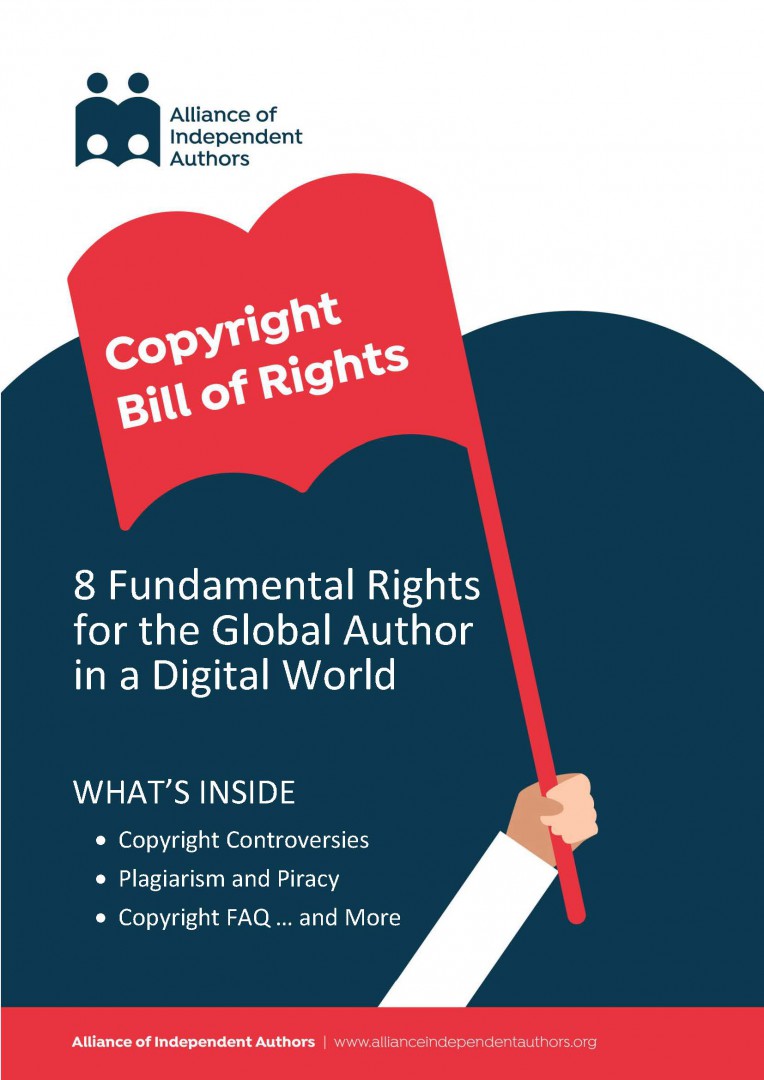 ALLi created the Copyright Bill of Rights: Eight Fundamental Rights for the Global Author in a Digital World that builds on the work of previous copyright activists to take into account the experience of self-publishing authors. ALLi members can download a free copy of the Bill of Rights by logging into allianceofindependentauthors.org and navigating to CAMPAIGNS > CAMPAIGN BOOKLETS. If you're not a member, you can download a copy in our bookshop here.
ALLi created the Copyright Bill of Rights: Eight Fundamental Rights for the Global Author in a Digital World that builds on the work of previous copyright activists to take into account the experience of self-publishing authors. ALLi members can download a free copy of the Bill of Rights by logging into allianceofindependentauthors.org and navigating to CAMPAIGNS > CAMPAIGN BOOKLETS. If you're not a member, you can download a copy in our bookshop here.
What is Copyright?
“A book is the author’s property, it is the child of his invention, the brat of his brain,” Daniel Defoe.
Copyright law protects “works of the mind,” namely original work of literature, music, film, art, photography, sculpture, architecture, computer programs, databases and more. Without copyright law, anybody could reproduce, translate, adapt or exploit any book without an obligation to acknowledge your interests, issue a license, or pay compensation.
Not all countries have copyright law and there is no international copyright law. This is significant for indie authors, as 78% of such authors responding to a 2019 ALLi survey on copyright sell their work globally, in as many countries as possible. (See International copyright below)
Where copyright does exist, the law treats your copyright interest as a piece of property, like your car or your home, but property of a special kind known as intellectual property. (Other categories of intellectual property include patents, trademarks and design rights).
Just like your house or car or other possessions, your copyright interest may be sold, assigned, licensed, given away and bequeathed.
By law, as the copyright holder, you have the right to control who:
- reproduces the work in books or other formats.
- sell, distributes and commercially exploits the work.
- creates derivative works, such as translations, adaptations, sequels, and abridgements, films, plays, apps.
- displays or performs the work publicly, either live or in recorded form.
In most western countries, a copyright comes into being as soon as an author puts the work into tangible form, be it a shopping list, a funny Limerick, or a best-selling novel, and whether on a pad of paper, a hard drive, a Smartphone or a recording device. You do not need to register to create a copyrightable interest in most jurisdictions: it happens automatically. The exception is the US (of which more below).
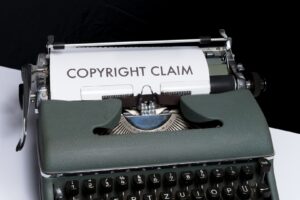
Photo by Markus Winkler on Unsplash
Copyright and Author Income
Your author business is entirely based on copyright law. Without such laws, readers and publishers and other individuals or companies wouldn't have to pay you for your words.
Author income derives from the copyright in the created work and all authors need to understand the basics of copyright law in order to protect their rights and maximize potential income. An indie author, who is both writer and the publisher, must not only understand the implications of copyright law but also the concept of selective rights licensing.
When we talk about an author “selling rights,” what we’re referring to is the legal right to grant permission (by license) to others to exploit some of those exclusive rights granted by law. To print the book or turn it into an ebook or audiobook, to translate the work, or to make a film based on it.
In short, copyright gives authors the right to control the publication and sale of their books in their own language, by territory or globally, but also the right to grant and license related rights to interested buyers. And the right to object to derogatory treatment or plagiarism by law.
Each right (and as we shall see below there are many) may be licensed separately in exchange for compensation in the form of a flat fee, a commission (percentage of a transaction) or royalties (a percentage of sales revenue for the duration of a license).
Traditional publishing works on an “all rights” basis, in which rights buyers try to license as many rights as possible. Selective rights licensing separates out each right for negotiation. But what does that mean in practice?
Asserting Copyright as as Author
From an author’s perspective, copyright is a passive right. An author who wants to engage it must assert ownership as a fact and, in cases of dispute, in a court of law. Copyright legislation has not prevented many self-publishing and trade-publishing companies from offering authors contracts that fail to align with the spirit, intention or letter of the law.
ALLi’s Watchdog desk regularly encounters unfair self-publishing and trade-publishing contracts that assign rather than license publishing rights, omit standard protection clauses, offer work-for-hire payment when royalties or commissions would be more ethical, and grab publishing rights which there is not plan, or even intention, to exploit.
In addition to unfriendly contracts, piracy and plagiarism are flourishing in the digital age, with little consequence for those who infringe copyright. Piracy differs from plagiarism in that the pirate unlawfully distributes copies of an author’s books, while the plagiarist repurposes another’s work as their own.
They can also differ in legal standing. Copyright is about protecting the commercial rights of the author. Piracy is, at its core, an infringement on commercial rights. However, plagiarism is an ethical failure that may not fit the legal definition of copyright infringement. As a result, incidents of plagiarism may fail to meet the legal requirements of a copyright infringement suit — and often go unpunished.
John Doppler, Head of ALLi’s Watchdog Desk
Both plagiarism and piracy can be unintentional or deliberate theft. For example, a nonfiction writer might fail to properly credit a quoted passage or a person might download a free book without knowing it is copyright protected. Many publishing and self-publishing services have deliberately flouted, or circumvented copyright law.
In the copyright debates, which we’ll explore in more detail in the next chapter, author representative bodies have largely spoken as if author and publisher interests are aligned (they have little to say about self-publishing, either author-publishing or self-publishing services). Yet big content companies have not been fair to authors in their interpretation of copyright, as the same author organizations acknowledge in other aspects of their work for fairer contracts and more equitable treatment.
There has been some standardization of contracts among the largest and most reputable trade publishers and self-publishing companies but authors have traditionally suffered from a power imbalance in negotiations with publishers.
To the publishing and self-publishing industries, authors are content providers, creating the products upon which their profits are built. For authors, copyright assertion can sometimes be difficult and expensive to prove and may provide no protection anyway, as those who act illegally, by definition, have little respect for the law.
And even in cases of clear breach of law, few individual authors have the resources, or the will, to sue for copyright infringement.
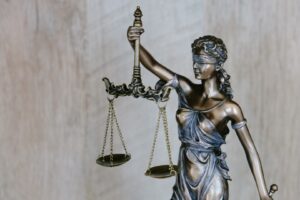
Photo by Tingey Injury Law Firm on Unsplash
Copyright for Authors: Fair Use and Fair Dealing
Although copyright law gives you a great deal of control over who may use your work and how, you cannot prohibit all uses. People may use portions of your work for education, commentary and even criticism, no matter how scathing. You may have to tolerate parody even if it is offensive and distasteful.
The doctrines of fair use in the US and fair dealing in the UK protect these forms of speech even when they incorporate your copyrighted work.
Fair dealing and fair use are defined as any copying of copyrighted material (even verbatim) for a limited purpose, such as commentary, criticism, education or parody. Such uses may be done without permission from the copyright owner.
The concept of “fair dealing” was spelled out in the UK 1956 Copyright Act and reinforced in the 1988 Act, specifying that copyright work could be quoted, permission free, for the purpose of research, private study, reporting of current events or for the purposes of criticism or review. In the US, fair use is considered a form of free speech protected by the First Amendment.
The line between fair use/dealing and infringement is murky. Much depends on the facts of the case, the aggressiveness of the copyright owner and the temperament of the judge. There is no specific number of words that may be used without permission.
Non-commercial or educational use is not 100% safe, particularly if you use a substantial part of the original material.
Giving credit to the author does not make a difference—you could be infringing even if you are not plagiarizing.
In the US, courts take four factors into consideration. No one factor controls; they are weighed against one another.
- The purpose and character of the use. Is the use commercial or for non-profit or educational purposes? Does the new work offer something above and beyond the original? The buzz word is transformative.
- The nature of the copyrighted work. Is the original work factual or artistic? Reusing factual content is more likely to be fair use, while reusing artistic elements is not. Using unpublished works is less likely to be fair use due to the potential negative effect on the value of the original work.
- The amount and substantiality of the portion used in relation to the copyrighted work as a whole. The more you use, the less likely it will be considered fair use, especially if you use the “heart” or “essence” of a work.
- The effect of the use upon the potential market for, or value of, the copyrighted work.
Keep in mind that fair use applies only to copyrighted work. The portions of any work which are not subject to copyright—titles, objective information such as historical facts, data and test results, ideas and concepts, may be used regardless of fair use.
Here are some examples of uses which were NOT considered fair use.
- A book of trivia questions based upon the Seinfeld show
- A Harry Potter encyclopedia
- A news program showing one minute and fifteen seconds of the Rodney King beating. (In contrast, uses of still images and clips of Abraham Zapruder’s film of JFK’s assassination have been considered fair use.)
- A parody of the O.J. Simpson trial based on The Cat In The Hat by Dr. Seuss, because it used the book to parody a related event. In other words, the court ruled the writer could use The Cat in The Hat to make fun of the book itself, but not for making fun of something else.
- In contrast, 2 Live Crew’s rap-style rewrite of Roy Orbison’s Oh, Pretty Woman was considered a parody and fair use because it poked fun at the song itself. Watch here.
As you can see, the cases are not entirely consistent. The safest course is to get permission from the copyright owner. Even if you are well within safe lines, the copyright owner might sue you anyway. Fair use is a defense. If you are sued you would have the burden of proving fair use. Think of the attorney’s fees and the time involved. While we admire those who take on David-Goliath fights, we’d rather spend our time writing our next books.
In summary, copyright underpins your publishing rights, creating something for you to trade.

Photo by Scott Graham on Unsplash
Copyright for Authors: Your Questions Answered
What Does Copyright Ownership Mean?
If anyone violates the exclusive rights described above, the copyright owner may have a claim of infringement and may entitle the copyright owner to obtain a court order to stop the infringing use and to recover monetary damages. In some cases, willful infringement may subject the infringer to criminal charges. Of course, there are exceptions. There are always exceptions, and exceptions to the exceptions.
What Is Protected By Copyright Law?
Literary works; musical works including lyrics; dramatic works; pictorial, graphic and sculptural works; sound recordings; architectural works; and pantomimes and choreographic works if fixed in tangible form such as a video recording.
What about characters and settings? Maybe. If a character is as fully developed as Harry Potter or a setting as distinctive as Panem in The Hunger Games, the creator might claim copyright protection.
What Is NOT Protected By Copyright Law?
It varies from country to country. In the Anglo-American world, titles, names and short phrases are copyright free. So sorry to say, your book’s title is not protected by copyright in the US—that’s why there are so many books with similar names—but when you publish in Germany, for example, it is.
If you have a series with a distinctive name, like the For Dummies series, or a very famous title like The Da Vinci Code, you may have a trademark interest in the title, but only because that title has become associated in the minds of buyers with a particular book, or product, from a particular maker. Trademark is not automatic. It gets its value by being used and known in the marketplace.
Objective information such as historical facts, test results and statistics, are not copyrightable although the method of organization and any analysis are. If you are writing non-fiction or historical fiction, real world facts and events are not protected. Anyone else may write about those same events, even if you were the one to discover them first.
Works not fixed into a tangible form of expression, such as improvisational performances and choreographic works that have not been written or recorded, are copyright free. As are ideas, themes and concepts, such as a spicy romance between a space alien and a movie star. This drives some writers crazy because they are sure their idea is worth millions and someone will steal it. But think about it. How many times have you had what feels like a million dollar idea, but after writing ten pages or two pages, the idea peters out? What copyright protects is the execution and expression of the idea into a story, drama, movie, painting, piece of music. Not the idea itself.
Stock characters and stereotypes such as the tough-talking gangster or the handsome-but-dull hero are not protected, because they are not considered original. Same with generic settings such as deep space or undersea worlds.
How Do You Mark Copyright ©?
Do you have to use the ©? Not technically, but do it anyway to put the world on notice of your ownership of the work. The copyright notice has three parts:
- © or copyright
- Year of first publication, which means the year the work was first distributed to the public. On unpublished material, the notice reads “Unpublished Work © year author.”
- Name of copyright owner, which may be a pen name or the name of an entity such as a corporation. If there is more than one copyright owner, name all of them.
- Also add “All Rights Reserved” because the phrase is required in some foreign countries. In Europe another common phrase is: “The moral rights of the author have been asserted.”
How Long Will Your Copyright Last?
In most countries a copyright lasts for the life of the author, plus fifty or seventy years. If there are two or more authors, use the life of the last surviving author, plus seventy years. The copyright passes to the heirs of the owners, just like any other property interest.
Many other highly developed countries, such as Japan, still have shorter terms.
Should You Register Your Work With Your Country's Copyright Office?
Registration is not necessary; you will own the copyright in your work whether or not you register it. However registration establishes a public, searchable record of your claim and is required in some countries before an infringement suit may be filed.
In the U.S., prompt registration (within three months following publication) increases the damages recoverable in an infringement action.
In 2019, the U.S. Supreme Court ruled that you must have registered your copyright in the US Copyright Office before you can sue for infringement of the copyright. In making this ruling, the Supreme Court rejected the rule adopted by lower courts allowing an infringement suit if an application has been submitted to the Copyright Office.
As in other jurisdictions, under U.S. law, a copyright exists the moment an author creates an original work and “fixes” it in a tangible medium. However, the U.S. Copyright Act also states that: “no civil action for infringement of the copyright in any United States work shall be instituted until … registration of the copyright claim has been made.”
Does Your Publishing Service Own Your Copyright?
Not unless they are unscrupulous. When you engage a publishing service, be it a publishing platform, or distributor, marketer or multi-service “publisher”, you should not be transferring any rights to them, other than the non-exclusive right to use your work to produce and distribute books for you, which may include the right to display and market it on their websites. If you are paying for a service, you are the publisher, and you retain all rights.
Should You Pay Your Publishing Service A Fee To Register Your Copyright For You?
No. And if a company is charging for this service, you should probably look elsewhere. There may well be other unnecessary add-ons in your package. See ALLi's guidebook How To Choose A Self-Publishing Service for more on this.
The Future of Copyright for Authors
Many of the rights now enshrined in copyright law were hard won by author activists of the past. It is thanks to them that writers have been able to find dignity and livelihood within publishing, as the laws were modified and improved throughout the nineteenth, twentieth, and twenty-first centuries.
Today, as jurisdictions around the world work to update their copyright laws to keep pace with digital disruption, creative entrepreneurship and the knowledge economy, we are at an important juncture for copyright policy and practice.
As intellectual property law has developed it has generated much contract law and also, these days, much electronic commerce law. Copyright has expanded its power and reach, moved beyond the intent of its original conception, and seen a huge copyright clearance industry grow up around it.
Copyright once spurred novelty, creativity and growth in our store of knowledge; now it restricts what can be made available in online libraries.
Once concerned with making it possible for authors to reach the widest possible readership, it now makes outlaws of millions of readers who post fan-fiction, or download or share free books.
Once an attempt to free authors from exploitation by printers and booksellers, and servile dependency on the patronage of church, state or royalty, it now tries to hand control back to Big Content publishers.
A myriad of social, technological, economic and legal developments now sees the copyright industry increasingly in conflict with critics, scholars, free expression activists, and the writers and artists it pertains to protect.
Legislation that focusses heavily on authors’ rights, without an understanding of the symbiotic relationship between author and reader, without a realistic assessment of how books and their associated products are discovered, bought, read and promoted today, without an understanding of how today’s most entrepreneurial creators work and trade and negotiate harms more authors and readers than it help.
The law can mean one thing for an advantaged group and something quite different for those on society’s margins or those disempowered by lack of knowledge, or trying to negotiate in conditions of unequal bargaining abilities or weight.
Just because authors own the rights doesn’t mean they know how, or have the confidence, to exploit them. Just because anyone can self-publish now doesn’t mean anyone does self-publish now.
Increased author confidence among self-publishing authors is now showing in the variety of business models they are adopting and the variety of content (not just text but audio and video) that many now publish on their websites.
Understanding this changed landscape is challenging for authors and the government bodies that support them: ministries responsible for business, entrepreneurship, culture, intellectual property, the knowledge economy, and related industry organizations. For example:
- Copyright legislators, governments and most literary bodies think territorially, within legislative jurisdictions, but independent authors think globally. Independent authors who live, write, publish and claim copyright in one territory are selling to and interacting with readers and potential readers worldwide.
- Author-publishers may choose to offer their work freely and consider themselves to be working in “the gift economy,” employing free sharing for ideological reasons, or so-called freemium models that ultimately generate a profit. Some even welcome piracy as a marketing strategy.
- Digital Rights Management (DRM) technology is useless in practice and most independent authors choose not to employ it, considering it an infringement on reader rights and an unnecessary inconvenience for their readers.
Moving copyright more firmly into the author’s domain today relies on authors’ ability to assert copyright, when signing contracts with publishing or self-publishing services, when negotiating with rights buyers, and when dealing with plagiarism and piracy.
Authors are not just creators and publishers. We are also content consumers, scholars, and citizens who acknowledge that public policy must consider and address these competing interests and ensure the preservation of a fair use/dealing environment, as well as free speech, on the Internet.
New technologies like machine learning, translation and other AI, the blockchain and other tools are fast coming on track, with the power to shift economies, businesses and behaviors and how authors trade, all over again.
More than ever, authors’ advancement depends on their ability to think critically about how copyright supports their work in the digital age, as author business models evolve.
International Copyright
As we said at the start, there is no international copyright. Instead, international copyright law is based on a “combination of domestic legal systems, regional and international regimes, as well as bilateral and multilateral treaties and agreements.” These treaties, notably the Berne Convention for the Protection of Literary and Artistic Works (Berne) and the Marrakesh Treaty, set out minimum copyright protections for signatory nations. The World Intellectual Property Organization (WIPO) oversees the administration of these protections.
International trade agreements also play a role in international copyright law, but it is the copyright treaties that deal with specific copyright matters.
Domestic copyright legislation is based on the underlying philosophy prevalent in each country. Indie authors would benefit from an expanded understanding of how the philosophy of their own country’s copyright law applies and differs from the laws of the jurisdictions in which they sell.
UK copyright law is underpinned by the philosophy of economics and the provision of monopolistic economic rights in an author’s work.
France offers the strongest moral rights, with a philosophy that aligns author rights with human rights, as opposed to a mere economic right. This droit morale protects an author’s work as well as their reputation and extends to them the right to decide how and whether to be identified as author of the work.
The US uses economic theory as the basis for its copyright law, resulting in fairly strong rights for authors and copyright owners. These rights are juxtapositioned against a long list of exceptions for users. Moral rights in the US do not extend to authors.
In Canada, copyright law is based on a combined European/UK philosophy, protecting economic rights to authors and copyright owners as well as provisions around moral rights.
EU copyright directives have standardized copyright law throughout the European Union, though each jurisdiction has separate and distinct laws and regulations.
Despite these differences, minimum requirements for copyright protection established by Berne have been adopted by nearly 200 signatory countries.
National Treatment
Berne’s underlying principle is national treatment: where the work is used determines the law that applies.
As an author, your copyright interest is largely subject to the law in the country where you reside and will be recognized in most countries. However, the concept of “national treatment” means that if someone in another country wishes to access, copy, or re-use portions of your work, for example photocopying an article, the copyright law in the country where the action occurs is applied. Each country has its own terms of protection.
Automatic Protection
Berne requires member countries to extend copyright protection automatically, as soon as the idea is “fixed,” that is written down or recorded.
A work does not need to be registered for copyright to take effect, though registration can provide proof in the event of a dispute and in some jurisdictions, notably the US, where copyright registration has been used in law courts as proof of ownership. In fact, the US didn’t sign on to Berne until 1989, as prior to that time copyright protection was not automatic and first required registration.
Duration of Protection
Berne requires copyright protection, and its right to control publishing, copying, and other exploitations of the works, for a minimum of fifty years after an author’s death (life-plus-fifty), after which it becomes public domain. In the US, EU, and UK, the duration is life-plus-seventy.
Copyright Controversies
The digital revolution has made copyright and its violation a news story that extends far beyond authors. Thanks to the Internet and social media which makes everyone with a social media account a self-publisher, copyright is moving mainstream. Early in 2019, opposition to a proposed EU Copyright Directive (now passed) saw, among other protests, an online petition gather more than five million signatures, a Polish newspaper printing a blank front page, Italian Wikipedia blacking out, and concerned German citizens taking to the streets.
Many of the free access protesters against Article 13 (now Article 17) of the controversial EU Directive were authors and other creators. They do not want the changes Big Content is asking for, purportedly on their behalf. These authors want the free and flexible Internet we already have and believe that the foundational copyright law we have is already robust and flexible enough to meet today’s needs.

Photo by Viktor Jakovlev on Unsplash
They are concerned that some changes which Big Content depicts as updating and improving copyright law for the digital age does not work well for independent authors and their readers. And within the self-publishing community itself, indie authors take many different approaches and hold widely varying opinions about copyright issues like piracy, plagiarism and digital rights management.
That copyright has real and significant value can be seen in how it is ever more vehemently contested by three competing interests regularly contesting each other across the digital battleground:
- Big Tech: Internet publishing platforms like Google, Facebook and Amazon that authors use to publish and/or promote books.
- Big Content: global media corporations like Penguin Random House, News International and Hollywood to whom authors licence publishing rights. Here we also find large self-publishing services like Author Solutions, some of whom grab rights as well as charging service fees.
- Big Legal: Large legislating territories and blocks like the USA or the European Union who aim to modify the power of big tech and big content.
All of these affect how self-publishers work and earn but none speak directly to, or for, independent authors. Neither do trade publishers, literary agents nor, sadly, many authors’ organizations.
The interests of an Internet tech giant like Google, Facebook, or YouTube; a social media company like Twitter or LinkedIn, a news organization like The Guardian or New York Times, a traditional publishing house like Random House or Penguin, a literary agency, a legislative body, a trade-published author, or even an authors’ representative body, may not align with those of the independent, self-publishing author.
EU Copyright Directive
Independent authors looked on with dismay as traditional authors’ associations keenly supported the passing of the recent controversial EU Directive in its stated aim of addressing the “big tech value gap”: the gap between the money earned by online platforms that host copyright works and the money received by authors and performers who create those works.
Independent authors know from experience that Big Tech companies are not all equal in their treatment of copyright. There is a vast difference between how Amazon, Kobo or Ingram Spark, for example, treat authors and other creators when compared to, for example, Pinterest, YouTube or Facebook.
Credit is due to publishing tech platforms who have respected copyright in their business models. Amazon’s innovative KDP platform, with its combination of ebooks, Kindle e-reader and online bookstore, has allowed countless authors to earn significant income, and enjoy significant impact and influence through self-publishing. It has inspired much other innovative and effective publishing tech in text, voice and video.
All of this is benefitting independent authors, allowing them to set up successful and sustainable author businesses. As author confidence grows, we see more writers setting up businesses that incorporate a variety of tech platforms, centered around their own websites and employing a variety of business models (See ALLi’s SelfPub3 Campaign for more on this).
Copyright Curtail and Control
The experiences of self-publishing authors need to be considered and weighed in copyright debate and policy, particularly by those who purport to speak on authors’ behalf.
The copyright industry’s ability to curtail and control has been blown apart by the explosion in author-publishing, personal publishing and organizational publishing; by the Internet’s free copying and remix culture; by the magnitude and global reach of peer-to-peer file sharing.
And also by illegal downloads and piracy.
Contrary to the claims of Big Content (and the author representative bodies that unfortunately support their assertions), new technologies have not been detrimental to authors.
Our copyright deliberations to date have revealed that many interested parties, including some authors and author associations, do not understand the self-publishing trading environment or, indeed, how books are bought, sold, read and promoted today. In consequence, there is a danger that ideas and campaigns around copyright that purport to speak for authors’ rights might actually be detrimental to the author who operates independently.
Misinformation about Self-Publishing
A great deal of misinformation about self-publishing circulates in the literary, publishing and creative industries, and the associated trade and government bodies that engage with them. And there’s a lot of lip service by Big Content companies who regularly use author rights protection when fighting what is actually a business dispute between them and Big Tech.
“Authors are always at the forefront of copyright debates… whether it’s arguments in favour of broader and longer rights, or against new uses for the broader public… But if you’re an author yourself, you might have noticed something puzzling… that, for someone who plays such a prominent role in the debate, surprisingly little of the rewards actually trickle down to you.” Associate Professor Rebecca Giblin, The Author’s Interest
On many issues around remuneration, independent authors have more in common with creative entrepreneurs in other sectors like music, art, tech and education than with authors who publish exclusively through the traditional agent-publisher-wholesaler-bookstore supply chain.
Who Should Benefit?
The very concept of copyright has been hotly contested, based on what Kevin Kelly of Wired magazine has called a profound riddle: Who should benefit most from works of the mind, the creators or society at large?
On the one side are those who argue strongly that creators must be paid for their work and see copyright as the best mechanism to ensure that they are. On the other are those who believe that, by granting an author (or a large corporation such as Disney) exclusive rights to a work for decades, the law is limiting the free flow of information, education, and inspiration. This tension has deepened, as the markets for literary work expand, and technology raises new questions.
Traditionally, copyright’s tug of interest has been a pas de trois between author, publisher, and reader. For the independent author, it’s a pas de deux, a balancing of author rights and reader rights.
Authors want copyright to deliver the rewards everyone wants from hard work: appropriate remuneration and recognition. The reader, whose interest is also protected by copyright, wants easy and reasonably priced access to good content.
Current conflicts between these two interests pit creators, content companies, Hollywood and governments on one side against readers, pirates, Silicon Valley, and open-access advocates on the other.
The copyright industries, with the support of some powerful authors’ organizations, argue, in the words of the UK Society of Authors (SoA), that:
“…sharing illegal copies for free online means publishers lose out on sales and authors lose out on royalties. It also leads to a decline in the perceived value of a book.”
UK Society of Authors “Where We Stand”
For these copyright activists, file sharing is theft. As SoA Chair and world-renowned trade-published author, Philip Pullman, put it: “… as surely as reaching into someone’s pocket and taking their wallet is theft.”
On the opposite side to the authors’ interest organizations is the “copy left”, or “free culture movement” who see this conflict between copyright holders and big tech as a matter of business models. This diverse group of activists, artists, lawyers and scholars sees copyright as a threat to open Internet access and file sharing, and the wave of innovation it has unleashed.
They urge authors and other creators towards a keener understanding of how to best exploit their own publishing rights in the digital age, rather than trying to curtail other platforms. They question the wisdom of trying to impose a twentieth-century exclusive-rights copyright regime on the digital landscape of the twenty-first century.
They fear excessive legal restrictions will endanger many invaluable knowledge and entertainment initiatives, from crowdsourced, “read-write websites” like Wikipedia to authors writing within another author’s fictional world.
And they oppose attempts to cordon off copyrighted material (digital rights management) as ineffective and ideologically unsound. Instead, they argue for the individual author’s right to set their own rights terms in Creative Commons agreements and quote evidence indicating that piracy, counter-intuitively, does not actually have a derogatory effect on author income.
“Anything that can be expressed as bits will be. I believe that bits exist to be copied. Therefore, I believe that any business model that depends on your bits not being copied is just dumb, and that lawmakers who try to prop these up are like governments that sink fortunes into protecting people who insist on living on the sides of active volcanoes.”
Cory Doctorow, https://craphound.com
Between these two polarized positions sits the independent author, relying on both copyright law and large Internet firms for their living.
The experience of the self-publishing author introduces much needed nuance into the debate and shows clearly that pitting author against “user” is an oversimplification that ignores how we buy, borrow, read and write books in the digital age.
For a start, authors are not simply creators in need of recompense and protection. We are also readers, researchers, scholars, and citizens seeking education, imaginative stimulation and inspiration. Digital publishing has moved us from a scarcity model around books to an abundance model. If we fail to recognise that, we are in danger of hurting more authors than we help.
For example, under current law, scanning a copyrighted work and making it available for display on the internet without permission is an infringement. Then along came the Google mass digitization project: Google Book Search, with the aspiration to make all of the world’s printed books available for digital search, without charge, for anyone with access to the Internet.
Should the law be different if, instead of one book, it’s twenty million? The US courts think so.
A US District Court determined that Google’s mass digitization of copyrighted works, making the works searchable and readable in “snippets,” qualified as an exception under fair use. The ruling was affirmed on appeal, and the case may be heard by the US Supreme Court.
The US Authors Guild is leading a legal battle against Google’s project.
“The digital revolution cannot come at the cost of authors’ rights to preserve writing as a livelihood.”
US Authors Guild
Yet many independent authors see the Google Book Search project as benefitting, not hurting their author-businesses. They want to be easily searchable and findable online. They know the biggest problem today’s author faces is obscurity and welcome any tool that help readers find their way to their book.
They want potential readers to be able to identify their books as being germane to their search inquiry. They want Google to locate the pages on which the search term appears for the reader, and to give a sense of what their book has to say about the search term.
For the reader—and nobody reads more than authors—Google’s Book Search project gives what Neil Winstock Netanel describes as:
“ready access to a global, virtual library card catalog, with the huge added value of being able to apply search engine queries to the entire text of every book, view the full text of public domain materials, and receive information about where to locate or buy copyright-protected materials.”
– Neil Winstock Netanel, Copyright’s Paradox
Copyright laws or vested “authors’ interest” lobbies that fail to acknowledge that we have moved from a scarcity to an abundance economy for books, and that fail to preserve and strengthen the symbiosis of the writer-reader relationship, fail writers as well as readers.

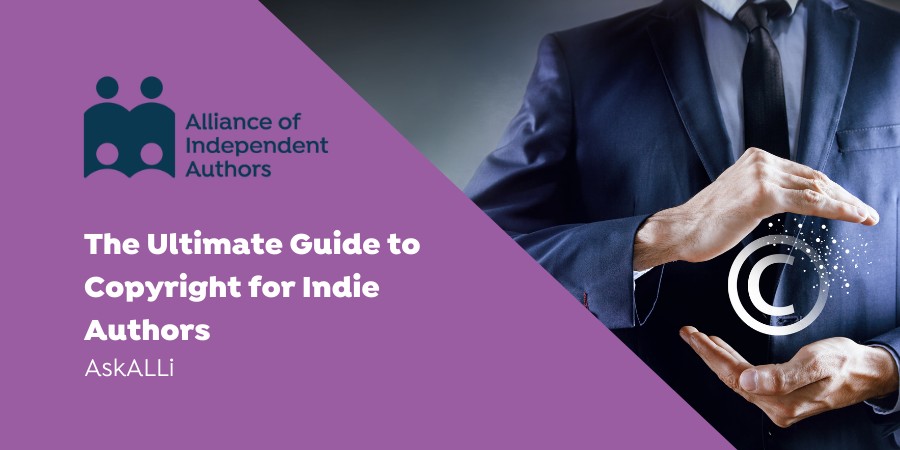
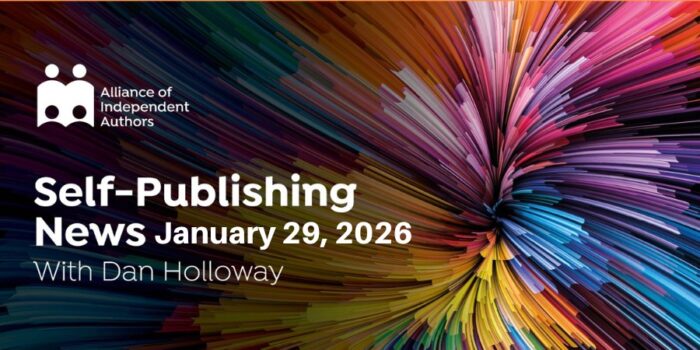
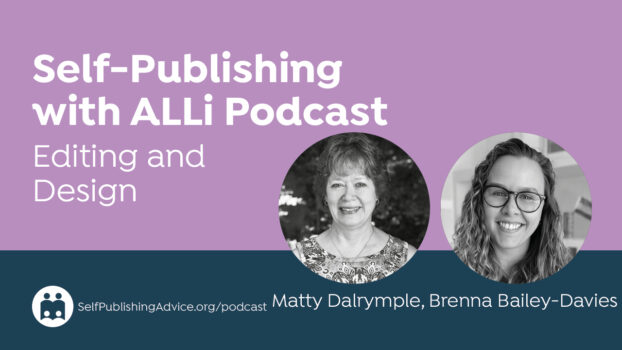
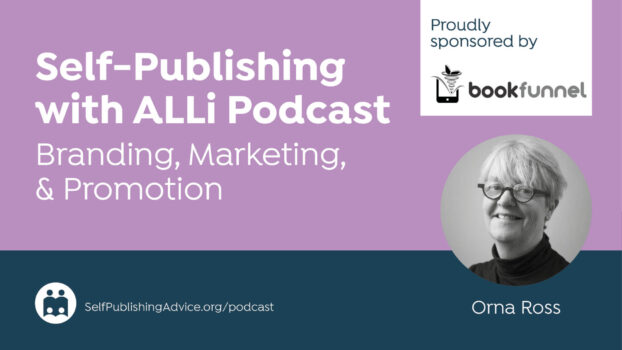
Who can we go to for further advice? I have a book where the theme and central characters have been plagiarised.
This is an eye-opener and thanks. I would not have known all of this unless I read it here.
Thanks a lot, AskALLi Team! Another helpful article 🙂 Go ahead